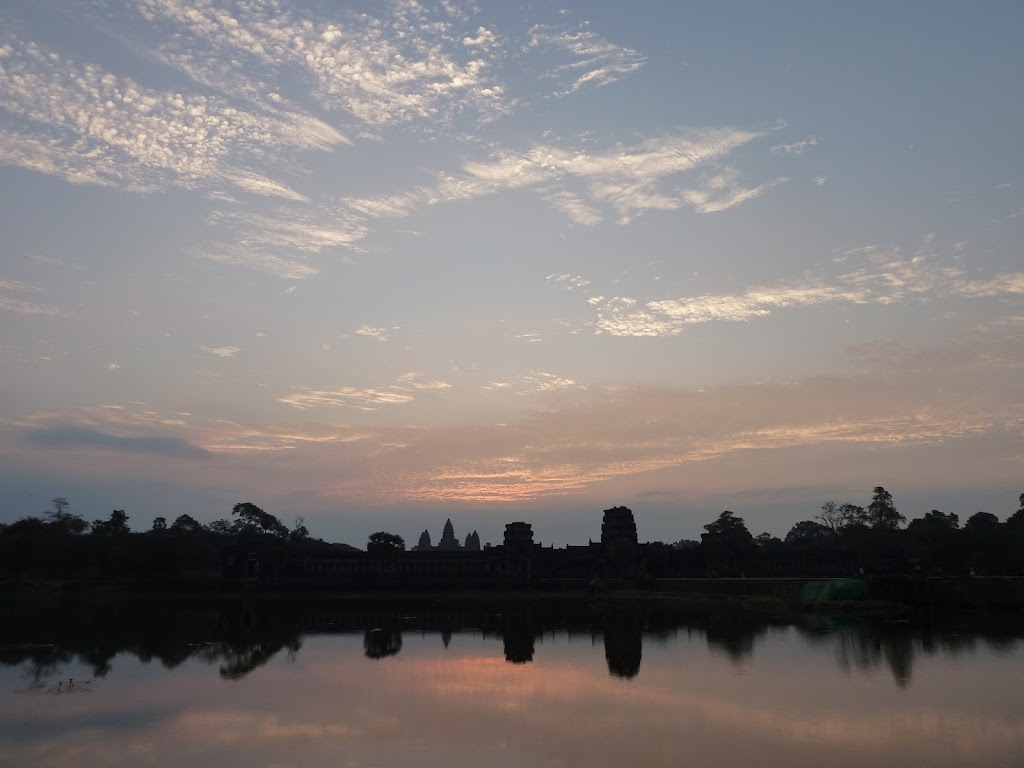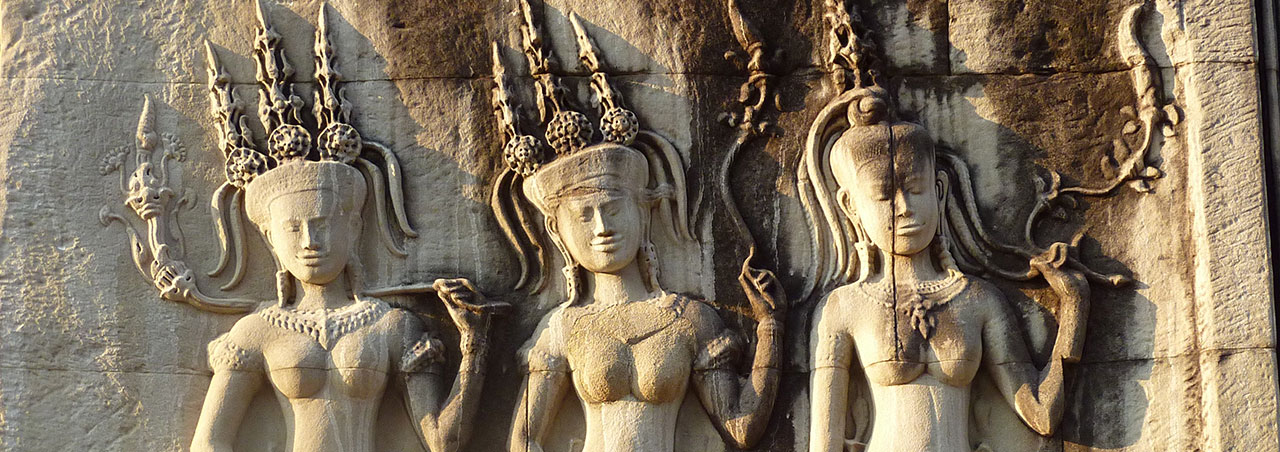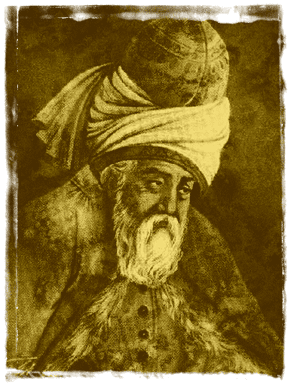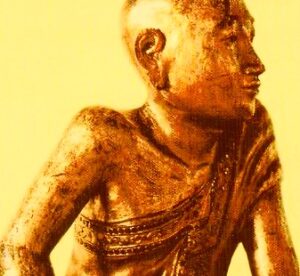For so many years this was my path. Step by step letting go of each mental factor, until cessation. Then what was this deathlessness I rested in?
1] Thus have I heard. On one occasion the Blessed One was living at Savatthi in Jeta’s Grove, Anathapindika’s Park. There he addressed the bhikkhus thus: “Bhikkhus.” – “Venerable, sir,” they replied. The Blessed One said this:
2] “Bhikkhus, Sariputta is wise; Sariputta has great wisdom; Sariputta has wide wisdom; Sariputta has joyous wisdom; Sariputta has quick wisdom; Sariputta has keen wisdom; Sariputta has penetrative wisdom. During half a month, bhikkhus, Sariputta gained insight into states one by one as they occurred. Now Sariputta’ insights into states one by one as they occurred were this:
3] “Here, bhikkhus, quite secluded from sensual pleasures, secluded from unwholesome states, Sariputta entered upon and abided in the first Jhana, which is accompanied by thinking and examining thought, with joy and happiness born of seclusion.
4] “And those states in the first Jhana – the thinking, the examining, the joy, the happiness, and the unification of mind; The contact, feeling, perception, volition and consciousness; the enthusiasm, decision, energy, mindfulness, equanimity, and attention – these states were defined by him one by one as they occurred; known to him those states arose, known they were present, known they disappeared. He understood thus: ‘So indeed, these states, not having been, come into being; having been, they vanish.’ Regarding those states, he abided un-attracted, un-repelled, independent, detached, free, dissociated, with a mind rid of barriers. He understood: ‘There is an escape beyond this,’ and with the cultivation of that attainment, he confirmed that there is.
5] “Again, bhikkhus, with the stilling of thinking and examining thought, Sariputta entered and abided in the second Jhana, which has self-confidence and stillness of mind without thinking and examining thought, with joy and happiness born of unification.
6] “And the states in the second Jhana – the self-confidence, the joy, the happiness, and the unification of mind; the contact, feeling, perception, volition, and consciousness; the enthusiasm, decision, energy, mindfulness, equanimity, and attention – these states were defined by him one by one as they occurred; known to him those states arose, known they were present, known they disappeared. He understood thus: “So indeed, these states, not having been, come into being; having been they vanish.” Regarding those states, he abided un-attracted, un-repelled, independent, detached, free, dissociated, with a mind rid of barriers. He understood; ‘There is an escape beyond this’, and with the cultivation of that attainment, he confirmed that there is.
7] “Again, bhikkhus, with the fading away as well of joy, Sariputta abided in equanimity, and mindful, and fully aware, still feeling happiness with his body, he entered upon and abided in the third Jhana, on account of which noble ones announce: ‘He has a pleasant abiding who has equanimity and is mindful’.
8] “And the states in the third Jhana – the equanimity, the happiness, the mindfulness, the full awareness, and the unification of mind; the contact, feeling, perception, volition and consciousness; the enthusiasm, decision, energy, mindfulness, equanimity, and attention – these states were defined by him one by one as they occurred; known to him those states arose, known they were present, known they disappeared. He understood thus: ‘So indeed, these states, not having been, come into being; having been they vanish’. Regarding those states, he abided un-attracted, un-repelled, independent, detached, free, dissociated, with a mind rid of barriers. He understood: ‘There is an escape beyond this’, and with the cultivation of that attainment, he confirmed that there is.
9] “Again, bhikkhus, with the abandoning of pleasure and pain, with the previous disappearance of joy and grief, Sariputta entered upon and abided in the fourth Jhana, which has neither-pleasure-nor-pain and purity of mindfulness due to equanimity.
10] “And the states in the fourth Jhana – the equanimity, the neither-pleasant-nor-painful feeling, the mental unconcern due to tranquility, the purity of mindfulness, and the unification of mind; the contact, feeling, perception, volition and consciousness; the enthusiasm, decision, energy, mindfulness, equanimity, and attention – these states were defined by him one by one as they occurred; known to him those states arose, known they were present, known they disappeared. He understood thus: ’So indeed, these states, not having been, come into being; having been, they vanish.’ Regarding those states he abided un-attracted, un-repelled, independent, detached, free, dissociated, with a mind rid of barriers. He understood, ‘There is an escape beyond this’, and with the cultivation of that attainment he confirmed that there is.
11] “Again, bhikkhus, with the complete surmounting of perceptions of form, with the disappearance of perceptions of sensory impact, with non-attention to perceptions of diversity, aware that ‘Space is Infinite,’ Sariputta entered upon and abided in the base of Infinite Space.
12] “And the states in the base of Infinite Space – the perception of the base of Infinite Space and the unification of mind; the contact, feeling, perception, volition and consciousness; the enthusiasm, decision, energy, mindfulness, equanimity, and attention – these states were defined by him one by one as they occurred; known to him they arose, known they were present, known they disappeared. He understood thus: ‘So indeed, these states, not having been, come into being; having been, they vanish’. Regarding those states, he abided un-attracted, un-repelled, independent, detached, free, dissociated, with a mind rid of barriers. He understood: ‘There is an escape beyond this,’ and with the cultivation of that attainment, he confirmed that there is.
13] “Again, bhikkhus, by completely surmounting the base of Infinite Space, aware that ‘Consciousness is Infinite’, Sariputta entered upon and abided in the base of ‘Infinite Consciousness’.
14] “And the states in the base of ‘Infinite Consciousness’ – the perception of the base of ‘Infinite Consciousness’ and the unification of mind; the contact, feeling, perception, volition, and consciousness; the enthusiasm, decision, energy, mindfulness, equanimity, and attention – these states were defined by him one by one as they occurred; known to him those states arose, known they were present, known they disappeared. He understood thus: ‘ So indeed, these states, not having been, come into being: having been they vanish.’ Regarding those states he abided un-attracted, un-repelled, independent, detached, free, dissociated, with a mind rid of barriers. He understood: ‘There is an escape beyond this’, and with the cultivation of that attainment, he confirmed that there is.
15] “Again, bhikkhus, by completely surmounting the base of Infinite Consciousness, aware that there is ‘Nothing’, Sariputta entered upon and abided in the base of ‘Nothingness’.
16] “And the states in the base of ‘Nothingness’ – the perception of the base of ‘Nothingness’ and the unification of mind; the contact, feeling, perception, volition and consciousness, the enthusiasm, decision, energy, mindfulness, equanimity, and attention – these states were defined by him one by one as they occurred; know to him those states arose, known they were present, known they disappeared. He understood thus: ‘So indeed, these states not having been, come into to being; having been, they vanish.’ Regarding these states he abided un-attracted, un-repelled, independent, detached, free, dissociated, with a mind rid of barriers. He understood: ‘There is an escape beyond this’, and with the cultivation of that attainment, he confirmed that there is.
17] “Again, bhikkhus, by completely surmounting the base of ‘Nothingness’ Sariputta entered upon and abided in the base of neither perception nor non-perception.
18] “He emerged mindful from that attainment. Having done so, he contemplated the states that had passed, ceased and changed, thus: ‘So indeed, these states, not having been, come into being; having been they vanished. Regarding those states, he abided un-attracted, un-repelled, independent, detached, free, dissociated, with a mind rid of barriers. He understood: ‘There is an escape beyond this,’ and with the cultivation of that attainment, he confirmed that there is.
19] “Again, bhikkhus, by completely surmounting the base of neither perception nor non-perception, Sariputta entered upon and abided in the cessation of perception and feeling. And his taints were destroyed by his seeing with wisdom.
20] “He emerged mindful from that attainment. Having done so, he recalled the sates that had passed, ceased, and changed, thus: ‘So indeed, these states, not having been, come into being; having been, they vanish.’ Regarding those states, he abided un-attracted, un-repelled, independent, detached, free, dissociated, with a mind rid of barriers. He understood: ‘There is no escape beyond this,’ and with the cultivation of that attainment, he confirmed that there is not’.
21] “Bhikkhus, rightly speaking, were it to be said of anyone: ‘He has attained mastery and perfection in noble virtue, attained mastery and perfection in noble collectedness, attained mastery and perfection in noble wisdom, attained mastery and perfection in noble deliverance,’ it is of Sariputta indeed that rightly speaking this should be said.
22] “Bhikkhus, rightly speaking, were it to be said of anyone: ‘He is the son of the Blessed One, born of his breast, born of his mouth, born of the Dhamma, created by the Dhamma, an heir in the Dhamma, not an heir in material things,’ it is of Sariputta indeed that rightly speaking this should be said.
23] “Bhikkhus, the matchless Wheel of Dhamma set rolling by the Tathagata is kept rolling rightly by Sariputta.”
That is what the Blessed One said. The Bhikkhus were satisfied and delighted in the Blessed One’s words.
Taken from the “Mahjjhima Nikaya: The Middle Length Sayings” by Bhikkhu Bodhi and Bhikkhu Nanamoli
Sutta translation (C) Bhikkhu Bodhi 1995, 2001.
Note for the Sutta: This Sutta covers what was taught by the Buddha concerning the identification of what the student experiences while meditating in each of the Four Jhanas and the four Arupa Jhanas. It is to be read in its entirety out-loud.



